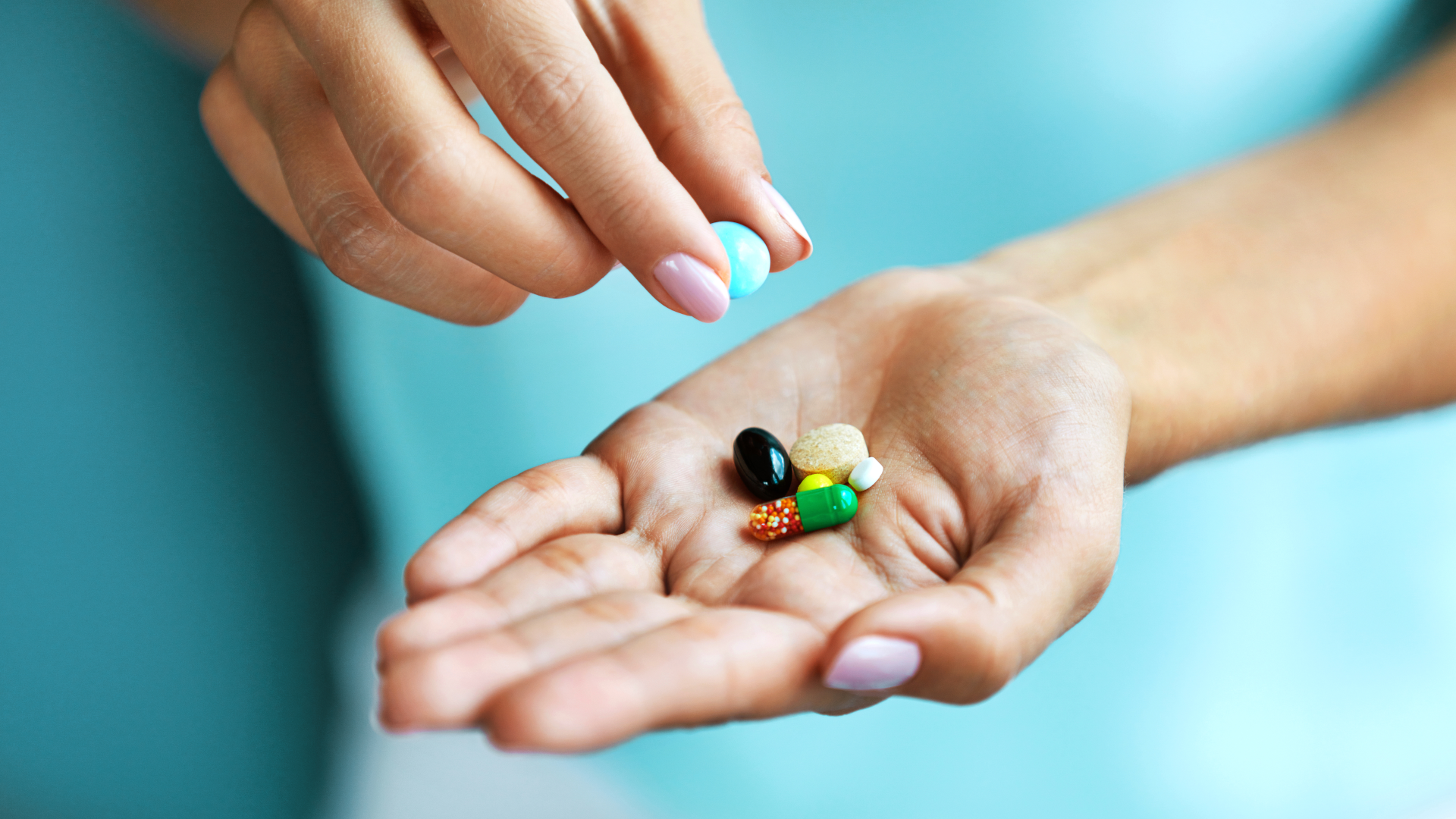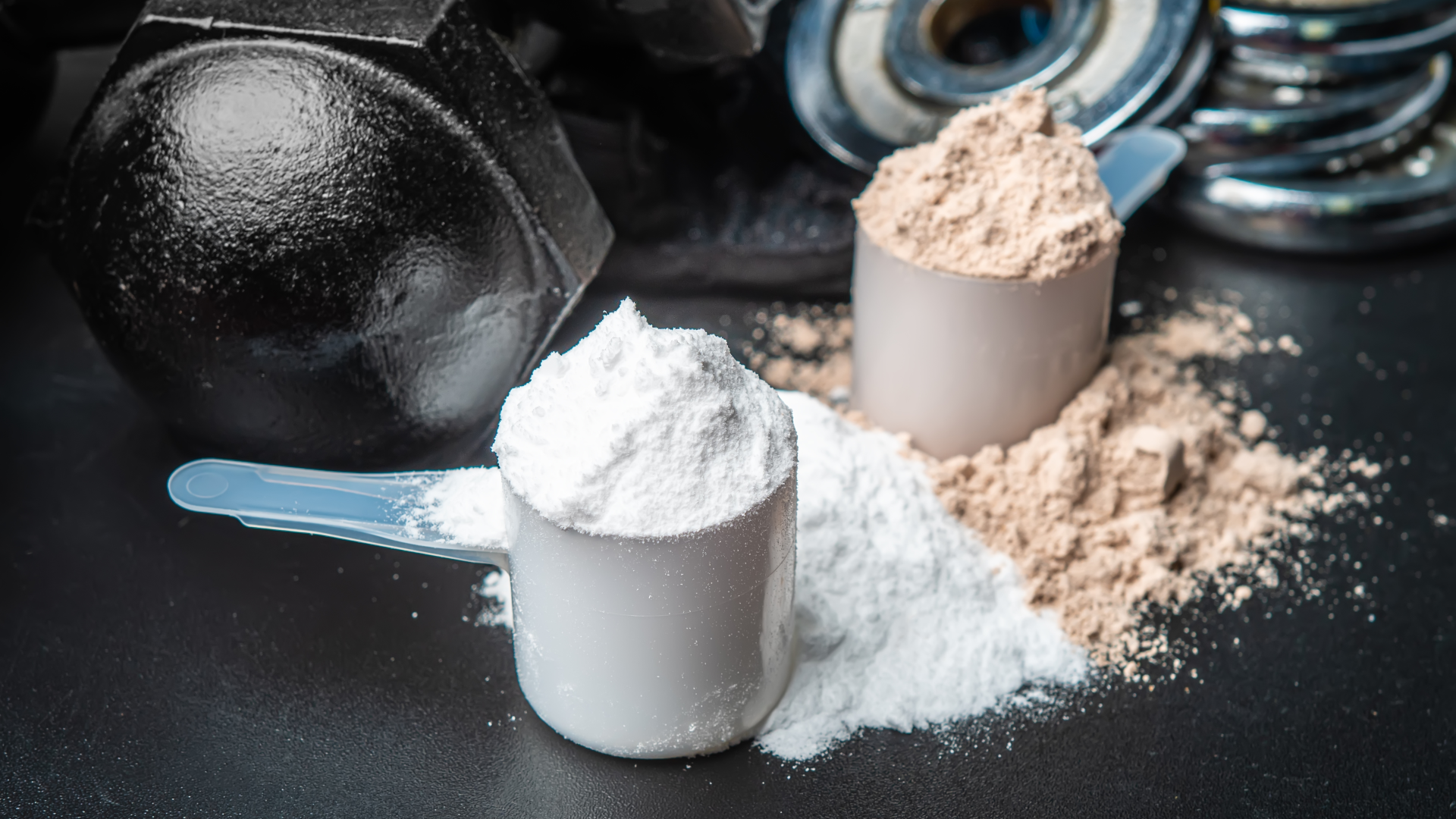Grab your cheat sheet |
Have you recently experienced a plateau in your progress despite continuous hard work at the gym?
Then it’s time to invest in a high-quality workout supplement. Getting enough protein is a must for anyone who wants to build muscle, so protein powder should be on your list.
But with so many options available, what is the best protein powder to help you achieve muscle growth?
How does protein powder help with building muscle mass?
A diet high in protein has wide-ranging health benefits for your body, but the ones most important for the budding athlete are:
- Protein is necessary to build muscle tissue.
- Protein supports muscle recovery and repair after exercise, meaning you can start training again quicker than those who don’t eat enough protein.
- A high-protein diet can help curb hunger and cravings, therefore aiding weight loss.
Is eating protein-rich foods enough?
Yes, you can get enough dietary protein from the food you eat to fuel post-workout muscle growth. However, some find that they struggle to hit their daily protein targets through food alone, especially adult men who undertake regular resistance training.
To get the most out of your workout and build lean muscle mass, you could need 150-200 grams of protein per day, or even more if you are a big guy! This is the equivalent of four large chicken breasts or 30 large eggs. 
The other issue is balancing your protein intake with your calorie intake. Many popular high-protein foods like red meat, dairy products and nuts are high in fat, and if you are over-reliant on these forms of protein, you could gain weight.
So, what’s the solution?
You guessed it: protein powder. A high-quality protein supplement has over 20 grams of protein for every 100 calories. It's easy to make, and it won’t make you feel like you have eaten a huge meal. Protein shakes are a great addition to your diet: they support muscle growth and ensure you hit your macro targets.
Which protein powder is best?
There are plenty of choices when it comes to protein, as it can be derived from a large variety of sources. However, not all protein sources are created equal, and two main factors determine the effectiveness of a protein powder.
Essential amino acids
Our body requires 22 amino acids, and we can synthesize most of these ourselves. However, there are nine that we cannot synthesize, known as the essential amino acids. We must instead get them from dietary protein, and the best protein supplements contain a high proportion.
Protein powders vary in their concentration of the nine essential amino acids, and some don’t actually have all nine. Proteins with all nine are called ‘complete proteins’ because they have everything you need for muscle repair and growth.
Leucine is of particular importance, as it has been proven to kickstart muscle growth.
Digestibility
Digestibility relates to how easily our body absorbs and uses protein. It is harder for our body to make use of some proteins, and we, therefore, have to eat or drink more of that protein to achieve the same results as proteins with a higher digestibility rate.
Now, to help you choose a product, we have outlined the most popular types of protein to help you find the one that’s right for you.
Whey Protein
Whey is an animal protein derived from milk (meaning it is suitable for vegetarians). It is a complete protein containing all of the essential amino acids. It also has a high proportion of all nine, including leucine. It is also highly digestible compared to most plant-based proteins. 
Whey protein is widely accepted to be the highest quality form of protein. There are a couple of reasons you may choose not to use whey protein: if you are vegan or highly sensitive to lactose. Below are details of some of the most popular vegan proteins.
Pea Protein
Pea protein as you may have guessed, is derived from peas. It isn’t a complete protein, meaning you need another form of protein to complement pea protein and ensure you get your full quota of amino acids. It does have plenty of iron, however, so if you have low iron levels, pea protein could be a great addition to your diet.
Soy Protein
Soy protein powder is made from soya beans which have had the hulls and fats removed. Soy protein has a comparable digestibility to whey protein powder. It is also a complete protein, but it doesn’t have as high a concentration of several essential amino acids, including leucine when compared to whey.
Hemp Plant Protein
Hemp protein is made by cold pressing and grinding hemp seeds into a powder. It doesn’t require a lot of processing, and it is, therefore a popular choice for those who want to keep their diets as natural as possible. It also contains lots of fiber. Its amino acid profile and digestibility are similar to that of soy protein.
Be careful not to choose a hemp protein supplement that has gone through any heat treatments, as this will degrade the protein and make it harder to digest.
(H3) Mixed Plant-Based Protein
You will also come across many mixed plant protein powders on your hunt for the best protein powders. These usually contain a mix of nuts, grains, legumes, seeds, and beans. The variety of sources means that these are complete protein powders, but they still don’t have quite as good an essential amino acid profile, and their digestibility is lower.
Which type of protein will give optimal muscle growth?
Unless you are vegan or have a lactose sensitivity, whey protein is always the best choice. You will need to drink more of the plant-based proteins to get the same effect. In some cases, 30 grams of plant protein is required to initiate muscle growth, whereas 20 grams of whey protein will suffice.
Of course, not all whey proteins are the same. Crazy Nutrition’s TRI-PROTEIN formula has been developed to ensure your muscles build, repair, and recover faster. Made with six natural, non-GMO proteins that break down in 3 phases for more energy and strength than regular whey, hemp, or soy protein formulas.



